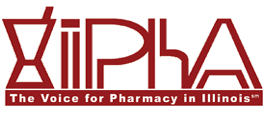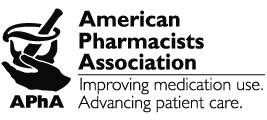3 Examples of Sexual Misconduct That Can Affect a Medical License
 Medical professionals are responsible for providing an expected quality of care for their patients. They must maintain a high level of professionalism in their practice, and that includes upholding ethical standards and following a code of conduct. Unfortunately, there are many instances of sexual misconduct that have been reported among medical professionals. Complaints of misconduct made by patients or other parties may lead the Illinois Medical Board to investigate a medical professional. The board may take disciplinary action such as suspending a person's medical license if it believes that these measures are appropriate. By understanding what constitutes sexual misconduct, doctors, nurses, or other providers can make sure they are avoiding this type of behavior, and they can take the correct steps to respond to complaints or investigations.
Medical professionals are responsible for providing an expected quality of care for their patients. They must maintain a high level of professionalism in their practice, and that includes upholding ethical standards and following a code of conduct. Unfortunately, there are many instances of sexual misconduct that have been reported among medical professionals. Complaints of misconduct made by patients or other parties may lead the Illinois Medical Board to investigate a medical professional. The board may take disciplinary action such as suspending a person's medical license if it believes that these measures are appropriate. By understanding what constitutes sexual misconduct, doctors, nurses, or other providers can make sure they are avoiding this type of behavior, and they can take the correct steps to respond to complaints or investigations.
Sexual Assault and Unwanted Sexual Advances
Sexual assault is one of the most serious offenses that a medical provider can commit, and accusations that a doctor or other professional engaged in sexual behavior with a patient without their consent can result in the loss of a medical license. If a medical professional makes unwanted sexual advances toward a patient, that may be considered sexual misconduct. Accusations of sexual assault or related offenses may also involve claims that a provider touched a patient inappropriately, made sexual comments, or otherwise took advantage of a patient sexually.
Inappropriate Sexual Relationships with Patients
A sexual relationship between a medical professional and a patient raises significant ethical questions. The position held by a medical professional can create a power imbalance in the relationship, making it difficult for a patient to give informed consent to medical treatments. It is considered inappropriate and unethical to engage in any romantic or sexual relationship with a patient, even if the patient initiates the relationship. To prevent patient complaints and potential discipline, it is essential for providers to maintain professional boundaries and avoid any behavior that could be perceived as inappropriate.
Sexual Harassment of Employees
Sexual harassment in the workplace is illegal and unacceptable in any profession. Medical professionals who hold supervisory positions must ensure that their behavior towards employees is always respectful and professional. Sexual harassment of subordinates is a serious offense, and it may include unwelcome advances, inappropriate touching, or suggestive language. In some cases, a person may be accused of engaging in "quid pro quo" sexual harassment by offering rewards or benefits to those who respond favorably to sexual advances or punishing those who do not provide requested sexual favors. In other cases, sexual harassment may consist of actions that create a hostile work environment. Accusations of sexual harassment can lead to the loss of a medical license, as well as other professional, personal, or even criminal consequences.
Contact Our Illinois Medical License Defense Attorney
Medical professionals must meet high ethical standards while following the correct steps to ensure that they are providing the best possible care for patients. Sexual misconduct is a serious issue that can damage the trust and credibility of the medical profession. If you have been accused of sexual misconduct or are being investigated because of patient complaints, The Law Offices of Joseph J. Bogdan, Inc. can help you defend against the loss of your medical license. Our Illinois medical license discipline lawyer can advise you on the best steps to take to protect your reputation, and we will provide you with representation in disciplinary hearings or other related proceedings. Contact us at 630-310-1267 for a free consultation.
Sources:
https://www.ilga.gov/legislation/ilcs/documents/022500600K22.htm
https://www.ilga.gov/commission/jcar/admincode/068/068012850B02400R.html














